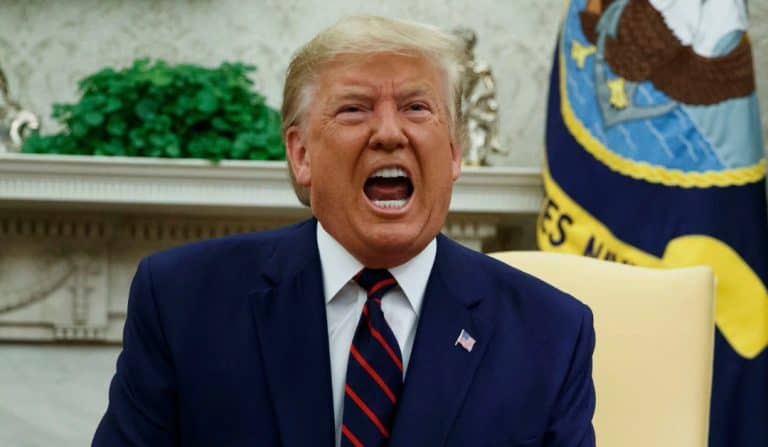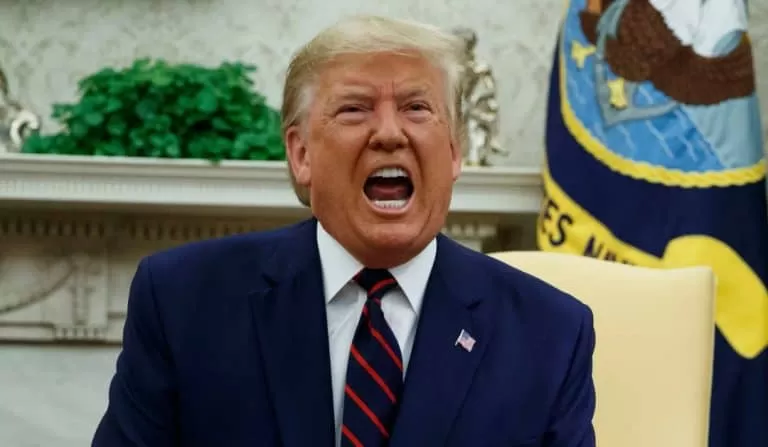

Last updated on September 11th, 2021 at 02:50 pm
Dr. Anthony Fauci’s testimony at Tuesday’s Senate hearing cut across the bipartisan efforts to prematurely open the country, sending a cold shudder down the spines of stock markets, which saw the Dow-Jones Industrial Average drop more than 300 points.
A leading figure in the White House coronavirus task force, Fauci cautioned senators that a rapid reopening of the country could lead to a dramatic resurgence in cases requiring returning into a second lockdown.
He cautioned that to expect a vaccine or some form of antiviral to be available by the time schools and colleges are due to open in August and September is wishful thinking.
In no uncertain terms, he said, “There is a real risk that you will trigger an outbreak that you may not be able to control, which in fact, paradoxically, will set you back, not only leading to some suffering and death that could be avoided but could even set you back on the road to try to get economic recovery.”
On Wednesday, in an attempt at damage control, President Trump went on the offensive against his own widely respected infectious disease expert.
“He wants to play all sides of the equations,” the president said, when asked by Fox Business Network about Fauci’s comments. “I was surprised by his answer. To me, it’s not an acceptable answer, especially when it comes to schools … we have to get the schools open, we have to get our country open, we have to open our country.”
Trump faces further fallout today as Dr. Rick Bright, the ousted former director of the Biomedical Advanced Research and Development Authority, an important unit of the Department of Health and Human Services, is set to tell Congress that the White House was utterly unprepared for the coronavirus pandemic when it hit the country, and unwilling to listen to the warnings of disease experts like himself.
In a prepared testimony obtained by CNN, Dr. Bright wrote, “Our window of opportunity is closing. If we fail to develop a coordinated national response, based on science, I fear the pandemic will get far worse and be prolonged, causing unprecedented illness and fatalities.
Without clear planning and implementation of the steps that other experts and I have outlined, 2020 will be the darkest winter in modern history.”
It has been just over four months since the world first heard of the novel coronavirus, tentatively called 2019-nCoV, later dubbed SARS-CoV-2.
The disease caused by the virus, COVID-19, has become firmly rooted in the global lexicon. In this short period, the world has seen almost 300,000 deaths and over 4.4 million cases, with 2.5 million currently infected patients.
The devastation being wrought by the pandemic far exceeds the gruesome figures cited. The impact on all economic and social life on the planet is massive.
It requires an urgent international response to stem the impending catastrophes of unemployment, hunger, disease, mass poverty, and war.
At Wednesday’s World Health Organization (WHO) press briefing, Director-General Tedros Adhanom Ghebreysus said that inequality is driving the COVID-19 pandemic, not only by causing significant loss of life but by threatening the progress made specifically in the prevention and treatment of childhood diseases, malarial infections and HIV.
WHO health statistics published yesterday demonstrate that the world will not meet the sustainable developmental goals, a collection of 17 global goals designed to improve the health of the people on the planet and intended to be achieved by the year 2030, and will be further thrown off track by COVID-19.
“The world has not done enough to deliver on the promise of health for all,” Ghebreysus said, “the best defense against this outbreak and other health threats is preparedness.
Health systems and health securities are two sides of the same coin. If we don’t invest in both, we will face not just health consequences but the social, economic and political fallout that we are already experiencing in this pandemic.” Dr. Soumya Swaminathan, the chief scientist of the World Health Organization (WHO), offered a sobering assessment of the pandemic on the second day of a live-streamed three-day global conference co-hosted by the Financial Times on the world’s response to COVID-19.
She stated that many factors would have to be considered to determine how long the world would be facing the challenges of coping with the pandemic. These include a global response to contain the virus, the continued threat that it poses, and whether a vaccine is eventually developed. “I would say in a four-to-five-year timeframe we could be looking at controlling this. There is no crystal ball … the pandemic could potentially get worse,” she said.
A vaccine seems for now the best way out, agreed all the participants, but these come with considerable caveats, and one concern they raised was that if the virus mutated sufficiently, the vaccine may stop working.
Additional issues raised included the scaling of these vaccines and their equitable distribution. Dr. Peter Piot, director of the London School of Hygiene and Tropical Medicine, corroborated this assessment, added that in the meantime, “we will have to find a way, as societies, to live with this and change from lockdowns to more granular, targeted types of interventions.”
(WorldSocialist)
The 2025 edition of AFCON will be hosted by Morocco which serves both the high-level competition and as a catalyst…
The Christian community marks Good Friday as its deepest holiday to remember when Jesus died at Calvary. The Christian community…
Art has the potential to take the talents from any regions across the globe, and this world has witnessed one…
Thousand of users worldwide face a discontinuation of WhatsApp services on older Android versions as Meta has officially announced this…
Disaster teams in KwaZulu-Natal stand ready to respond to persistent rainfall while drivers should approach roads with care. According to…
Starlink the satellite internet company by Elon Musk is growing fast in Africa. It now works in more than 20…
This website uses cookies.